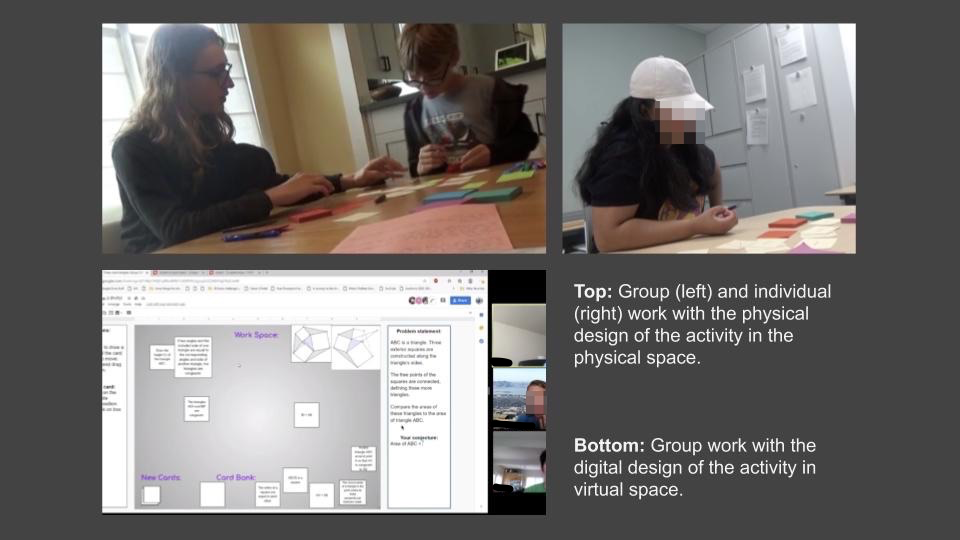Designing for sensemaking and engagement in mathematics
Puzzling Proofs
Project description:
An ongoing design-based research project that aims to support adolescents’ engagement in authentic epistemic practices in mathematics.
Approach:
With constant feedback from students, educators and learning scientists I aim to design a proving activity that (i) creates opportunities for students to “see” and engage in often invisible mathematical epistemic practices, and (ii) demystifies the process and goals of proofs in mathematics. I have conducted interviews and observational studies with low- and high- tech designs of a puzzle-like proving activity.

Main insights:
Although research is still ongoing in this project, some of the themes that have emerged so far include:
(i) the influence of materials (i.e. physical paper vs. digital manifestation of papers) and workspace (in-person vs. online) in students’ experiences,
(ii) opportunities for collaboration that have the potential to create more equitable experiences even among students with different degrees of familiarity with mathematical content, and
(iii) drawing parallels between everyday argumentation and argumentation in mathematics that highlights structural similarities in building and supporting arguments can increase learners’ accessibility to mathematical practices.
Notes:
– Poster presentation: Graduate School of Education Research Day 2018, UC Berkeley (prototype)
– Poster presentation: Psychology of Mathematics Education Annual Conference 2019, South Africa (pilot study with physical design)
– Invited talk: Short presentation in “Womxn in Mathematics (WiM)” student group, UC Berkeley